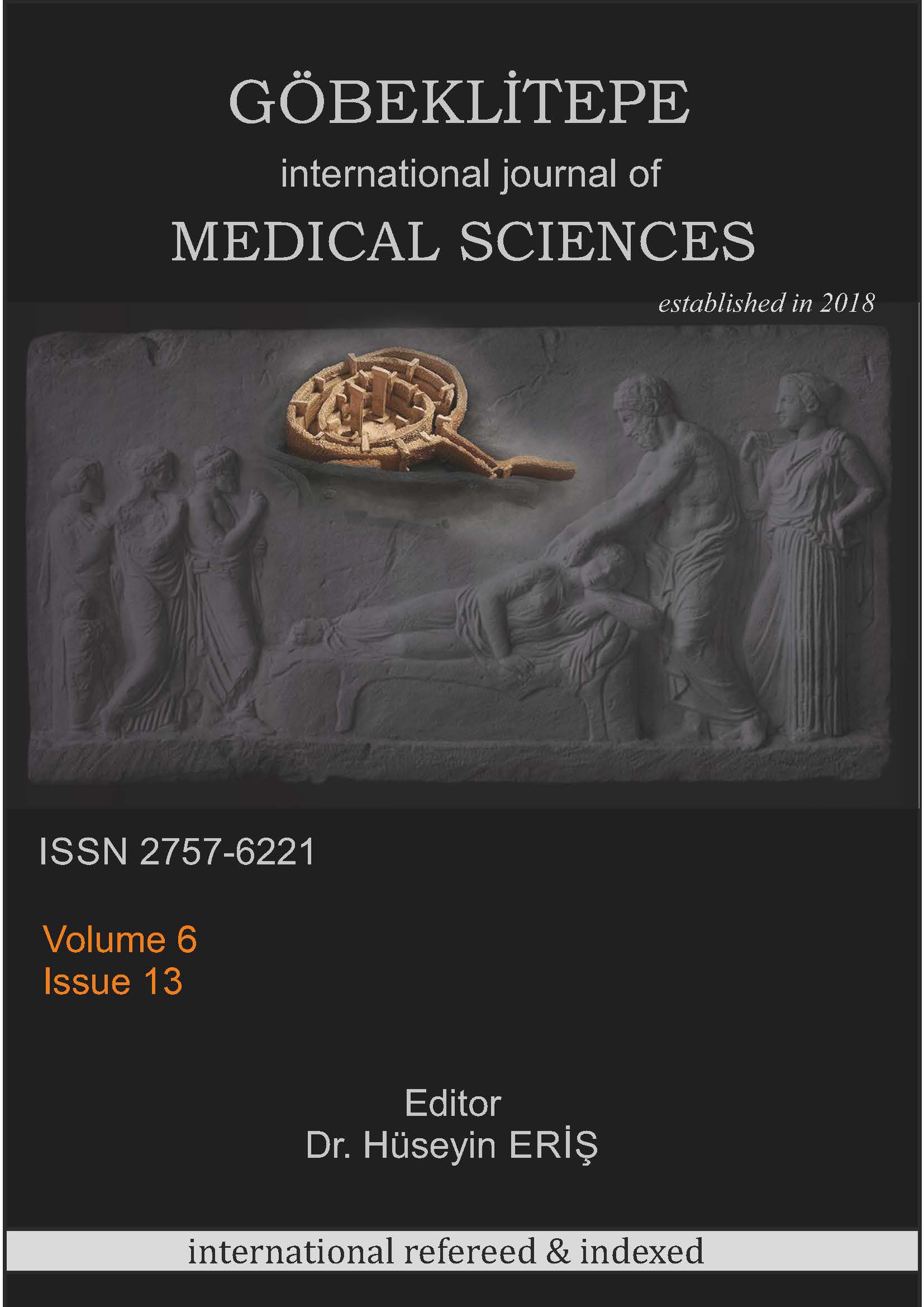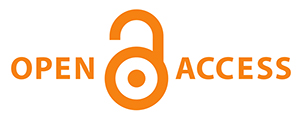THE FUTURE OF NURSING FROM THE PERSPECTIVE OF NURSES AFTER THE PANDEMIC: A QUALITATIVE STUDY
The future of nursing
DOI:
https://doi.org/10.55433/gsbd./175Keywords:
Experiences Of Nurses, Future Of Nursing, Nursing, PandemicAbstract
This study was conducted to determine the views of nurses on the future of nursing after the pandemic. The data of this study, which was conducted in a qualitative research design, were collected through in-depth interviews with the nurses reached by snowball sampling method. The COREQ checklist was followed. Twenty-two nurses participated in the study. The expressions of the nurses were analyzed in 3 themes. These themes are; positive effects of the pandemic on the nursing profession, negative effects of the pandemic on the nursing profession, suggestions for difficulties in the nursing profession. Participants stated that nurses experienced many physical and psychological problems during the pandemic, and that these problems caused burnout, which in turn led to alienation from the profession. Particularly, the participants, who expressed their concerns that there would be a nursing shortage in the future due to leaving the job or not choosing nursing.
References
Cevirme, A., & Kurt, A. (2020). COVID-19 pandemia and its reflections to nursing profession. Eurasian Journal of Researches in Social and Economics (EJRSE), 7(5), 46-52. (In Turkish)
Schwerdtle, P. N., Connell, C. J., Lee, S., Plummer, V., Russo, P. L., Endacott, R., & Kuhn, L. (2020). Nurse expertise: A critical resource in the COVID-19 pandemic response. Annals of Global Health, 86(1), 49. https://doi.org/10.5334/aogh.2898
Fawaz, M., Anshasi, H., & Samaha, A. (2020). Nurses at the front line of COVID-19: Roles, responsibilities, risks, and rights. Am J Trop Med Hyg, 103(4), 1341-1342.
Hachisu, T., & Suzuki, K. (2018). Tactile Apparent Motion Through Human-Human Physical Touch. In: Prattichizzo, D., Shinoda, H., Tan, H., Ruffaldi, E., Frisoli, A. (eds) Haptics: Science, Technology, and Applications. EuroHaptics 2018. Lecture Notes in Computer Science, vol 10893, pp. 163–174. Springer, Cham. https://doi.org/10.1007/978-3-319-93445-7_15
Pedrazza, M., Berlanda, S., Trifiletti, E., & Minuzzo, S. (2018). Variables of individual difference and the experience of touch in nursing. Western Journal of Nursing Research, 40(11), 1614-1637. http://doi.org/10.1177/0193945917705621
Karasu, F., & Çopur, E. Ö. (2020). An intensive care nurse in the forefront of the epidemic while increasing cases of COVID-19: “Heroes in front-line”. Yoğun Bakım Hemşireliği Dergisi, 24(1), 11-14. (In Turkish)
Schwartz, J., King, C. C., & Yen, M. Y. (2020). Protecting healthcare workers during the Coronavirus Disease 2019 (COVID-19) outbreak: Lessons from Taiwan's severe acute respiratory syndrome response. Clin Infect Dis, 71(15), 858-860. http://doi.org/10.1093/cid/ciaa255
Mokhtari, R., Moayedi, S. & Golitaleb, M. (2020). COVID-19 pandemic and health anxiety among nurses of intensive care units. Int J Ment Health Nurs, 29(6), 1275-1277. http://doi.org/10.1111/inm.12800
Haslam, M. B. (2021). What might COVID-19 have taught us about the delivery of Nurse Education, in a post-COVID-19 world? Nurse Educ Today, 97, 104707. http://doi.org/10.1016/j.nedt.2020.104707
Creswell, J. (2013). Qualitative inquiry and research design. California. Fivequalitative approaches to inquiry. Los Angeles: Sage.
Clarke, V., & Braun, V. (2014). Thematic analysis. In A. C. Michalos (Ed.), Encyclopaedia of quality of life and well-being research (pp. 6626-6628). Dordrecht: Springer.
Pappa, S., Ntella, V., Giannakas, T., Giannakoulis, V. G., Papoutsi, E., & Katsaounou, P. (2020). Prevalence of depression, anxiety, and insomnia among healthcare workers during the COVID-19 pandemic: A systematic review and meta-analysis. Brain Behav Immun, 88, 901-907. https://doi.org/10.1016/j.bbi.2020.05.026
Raudensk´a, J., Steinerov´a, V., Javůrkov´a, A., Urits, I., Kaye, A. D., Viswanath, O., & Varrassi, G. (2020). Occupational burnout syndrome and post-traumatic stress among healthcare professionals during the novel coronavirus disease 2019 (COVID-19) pandemic. Best Practice and Research: Clinical Anaesthesiology, 34, 553-560. https://doi.org/10.1016/j.bpa.2020.07.008
Bruyneel, A., Smith, P., Tack, J., & Pirson, M. (2021). Prevalence of burnout risk and factors associated with burnout risk among ICU nurses during the COVID-19 outbreak in French speaking Belgium. Intensive Crit Care Nurs, 65, 103059. https://doi.org/10.1016/j.iccn.2021.103059
Prasad, K., McLoughlin, C., Stillman, M., Poplau, S., Goelz, E., Taylor, S., Nankivil, N., Brown, R., Linzer, M., Cappelucci, K., Barbouche, M., & Sinsky, C. A. (2021). Prevalence and correlates of stress and burnout among U.S. healthcare workers during the COVID-19 pandemic: A national cross-sectional survey study. eClinicalMedicine, 35, 100879. https://doi.org/10.1016/j.eclinm.2021.100879
Crismon, D., Mansfield, K. J., Hiatt, S. O , Christensen, S. S., & Cloyes, K. G. (2021). COVID-19 pandemic impact on experiences and perceptions of nurse graduates. J Prof Nurs, 37(5), 857-865. https://doi.org/10.1016/j.profnurs.2021.06.008
Calışkan, N. Ö., Yalın, H., & Eti Aslan, F. (2022). Pandemic journey to prestige at nursing. Clin Ethics, 1-5. https://doi.org/10.1177/14777509221091091
Dye, T. D., Alcantara, L., Siddiqi, S., Barbosu, M., Sharma, S., Panko, T., & Pressman, E. (2020). Risk of COVID-19-related bullying, harassment and stigma among healthcare workers: An analytical cross-sectional global study. BMJ Open, 10(12), e046620. https://doi.org/10.1136/bmjopen-2020-046620
Shun, S. C. (2021). COVID-19 pandemic: The challenges to the professional identity of nurses and nursing education. The Journal of Nursing Research, 29(2), Article e138. https://doi:/10.1097/JNR.0000000000000431
Lopez, V., Anderson, J., West, S., & Cleary, M. (2022). Does the COVID-19 pandemic further impact nursing shortages? Issues Ment Health Nurs, 43(3), 293-295. https://doi:/10.1080/01612840.2021.1977875
International Council of Nurses. (2021). The COVID-19 Effect: World’s nurses facing mass trauma, an immediate danger to the profession and future of our health systems. Retrieved From: https://www.icn.ch/news/covid-19-effect-worlds-nurses-facing-mass-trauma-immediate-danger-profession-and-future-our
Maunder, R. G., Heeney, N. D., Kiss, A., Hunter, J. J., Jeffs, L. P., Ginty, L., Johnstone, J., Loftus, C. A., & Wiesenfeld, L. A. (2021). Psychological impact of the COVID-19 pandemic on hospital workers over time: Relationship to occupational role, living with children and elders, and modifiable factors. Gen Hosp Psychiatry, 71, 88-94. https://doi.org/10.1016/j.genhosppsych.2021.04.012
Varasteh, S., Esmaeili, M., & Mazaheri, M. (2022). Factors affecting Iranian nurses’ intention to leave or stay in the profession during the COVID-19 pandemic. International Nursing Review, 69, 139-149. https://doi.org/10.1111/inr.12718
Özkan Şat, S., Akbaş, P., & Yaman Sözbir, Ş. (2021). Nurses' exposure to violence and their professional commitment during the COVID-19 pandemic. J Clin Nurs, 30(13-14), 2036-2047. https://doi.org/10.1111/jocn.15760
Phuekphan, P., Aungsuroch, Y., & Yunibhand, J. (2021). A model of factors influencing intention to leave nursing in Thailand. Pacific Rim International Journal of Nursing Research, 25(3), 407-420. Retrieved From: https://he02.tci-thaijo.org/index.php/PRIJNR/article/view/248823
Kim, J., Chae, D., & Yoo, J. Y. (2021). Reasons behind generation Z nursing students’ intentions to leave their profession: A cross-sectional study. Inquiry: The Journal of Health Care Organization, Provision and Financing, 58, 46958021999928. https://doi.org/10.1177/ 0046958021999928
Labrague, L. J., & McEnroe-Petitte, D. M. (2018). Job stress in new nurses during the transition period: An integrative review. International Nursing Review, 65(4), 491-504. https://doi.org/10.1111/inr.12425
Dillon, D. L., Dolansky, M. A., Casey, K., & Kelley, C. (2016). Factors related to successful transition to practice for acute care nurse practitioners. AACN Adv Crit Care, 27(2), 173-182. https://doi.org/10.4037/aacnacc2016619
Chen, S.-C., Lai, Y.-H., & Tsay, S.-L. (2020). Nursing perspetives on the impacts of COVID-19. The Journal of Nursing Research, 28(3), Article e85. https://doi.org/10.1097/jnr.0000000000000389
Yáñez, J. A., Jahanshahi, A. A., Alvarez-Risco, A., Li, J., & Zhang, S. X. (2020). Anxiety, distress, and turnover intention of healthcare workers in Peru by their distance to the epicenter during the COVID-19 crisis. Am J Trop Med Hyg, 103(4), 1614-1620. https://doi.org/10.4269/ajtmh.20-0800
Heo, Y.-M., Lee, M. & Jang, S.J. (2021). Intentions of frontline nurses regarding COVID-19 patient care: A cross-sectional study in Korea. J Nurs Manag, 29(6), 1880-1889. https://doi.org/10.1111/jonm.13333
Sperling, D. (2020). Ethical dilemmas, perceived risk, and motivation among nurses during the COVID-19 pandemic. Nurs Ethics, 28(1), 9-22. https://doi.org/10.1177/0969733020956376
World Health Organization. (2020). State of the World’s Nursing 2020: Investing in Education, Jobs and Leadership. WHO, Geneva. Retrieved From: https://www.who.int/publications/i/item/9789240003279
Drennan, V. M. & Ross, F. (2019). Global nurse shortages-the facts, the impact and action for change. Br Med Bull, 130(1), 25-37. https://doi.org/10.1093/bmb/ldz014
Catton, H. (2021). COVID-19: The future of nursing will determine the fate of our health services. Int Nurs Rev, 68(1), 9-11. https://doi.org/10.1111/inr.12673
Turale, S., & Nantsupawat, A. (2021). Clinician mental health, nursing shortages and the COVID-19 pandemic: Crises within crises. Int Nurs Rev, 68(1), 12–14. https://doi.org/10.1111/inr.12674
Barrett, D., & Heale, R. (2021). COVID-19: reflections on its impact on nursing. Evid Based Nurs, 24(4), 112-113. http://dx.doi.org/10.1136/ebnurs-2021-103464
International Council of Nurses. (2021a). 74th World Health Assembly: Nursing action and impact in global policy making. Retrieved From: https://www.icn.ch/system/files/2021-07/74TH%20WHA%20REPORT.pdf
Sun, N., Wei, L., Shi, S., Jiao, D., Song, R., Ma, L., Wang, H., Wang, C., Wang, Z., You, Y., Liu, S., & Wang, H. (2020). A qualitative study on the psychological experience of caregivers of COVID-19 patients. Am J Infect Control, 48, 592-598.
Zhang, Y., Yang, M. & Wang, R. (2021). Factors associated with work–family enrichment among Chinese nurses assisting Wuhan’s fight against the 2019 COVID-19 pandemic. J Clin Nurs, 1-12. https://doi.org/10.1111/jocn.15677
Duran, S., Celik, I., Ertugrul, B., Ok, S., & Albayrak, S. (2021). Factors affecting nurses' Professional commitment during the COVID-19 pandemic: A cross-sectional study. J Nurs Manag, 29(7), 1906-1915. https://doi.org/10.1111/jonm.13327
Ganji, S.F.G. & Johnson, L.W. (2020). The relationship between family emotional support, psychological capital, female job satisfaction and turnover intention. International Journal of Economics, Business and Management Studies, 7(1), 59-70. http://doi.org/10.20448/802.71.59.70
Downloads
Published
Versions
- 2024-07-02 (2)
- 2023-10-04 (1)
How to Cite
Issue
Section
License
Copyright (c) 2023 Göbeklitepe Sağlık Bilimleri Dergisi

This work is licensed under a Creative Commons Attribution 4.0 International License.




